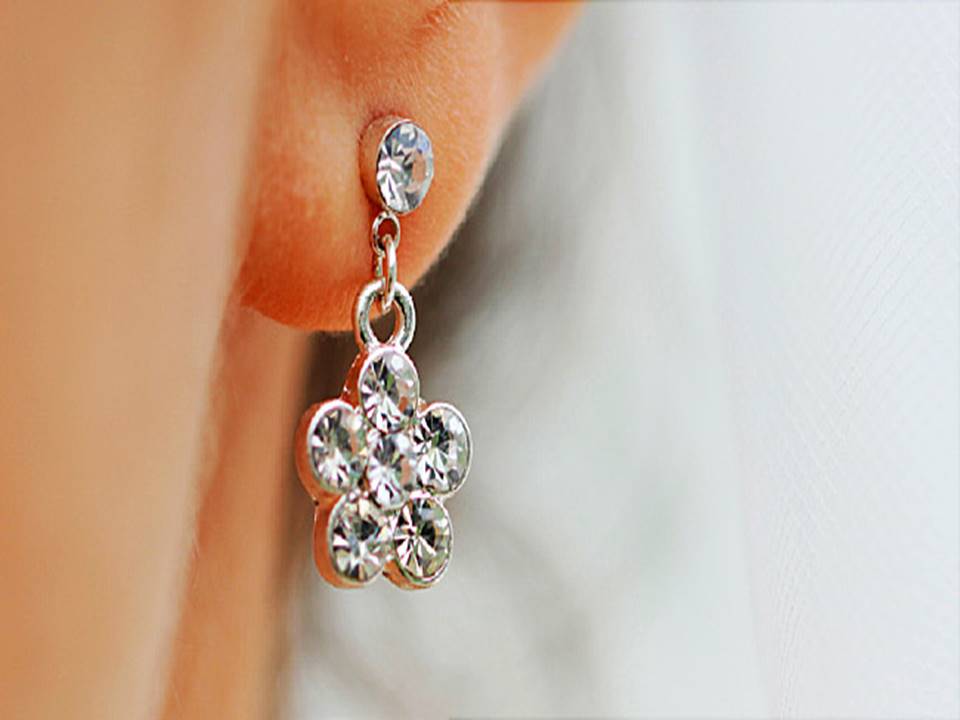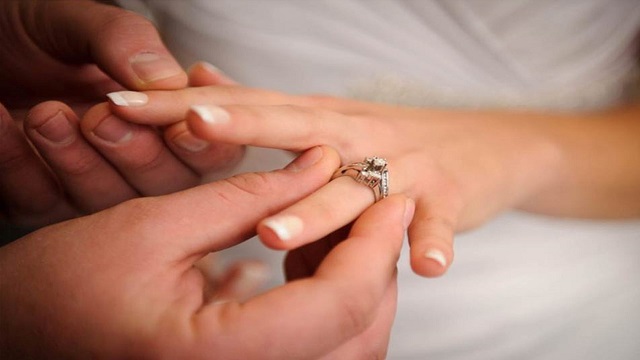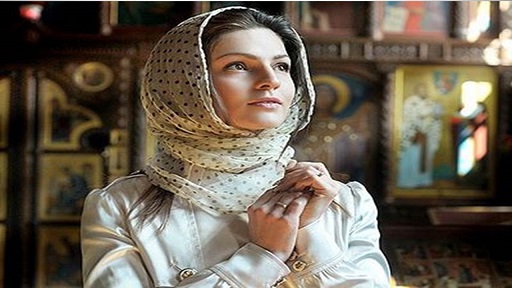
What Does the Bible Teach Concerning Ornaments?

Samuel Smith
23 Jan'19
5
LESSON 2
WHAT DOES THE BIBLE TEACH CONCERNING EARRINGS, MAKEUP AND OTHER ORNAMENTS?
You are welcome to another edition of Insights from God's Word, a Bible study programme that is committed to sharing God's Word by allowing the Bible to speak for itself.In this edition, we continue with our series on Christian Adornment. The topic for this study is: What Does the Bible Teach Concerning Earrings, Makeup and other Ornaments? It is interesting to learn that the Bible has much to say concerning earrings, makeup and other ornaments. In the Bible, jewellery or ornaments served several purposes. Some few I want to mention include:
i) Its use as currency or a medium of exchange (
ii) Its use as freewill offerings (
iii) Its use by priests and kings as symbols of authority (
In this study however, I want us to focus on the use of ornaments for personal adornment. As we go through the pages of Scripture, we gain wonderful counsels with regards to this topic. However, just like other plain teachings of Scripture, one is likely to find room to justify his or her position by examining only quotes which seem to support his or her way of living. It is my sincere prayer that the Lord will lead us to behold wonderful truths in His Word as we open the pages of Scripture in this study.
Friends, as Jacob journeyed with his family from Haran to the land of Canaan, God reminded him of the promise he had made to Him at Bethel (see
35:2 Then Jacob said unto his household, and to all that were with him, Put away the strange gods that are among you, and be clean, and change your garments:
35:3 And let us arise, and go up to Bethel; and I will make there an altar unto God, who answered me in the day of my distress, and was with me in the way which I went.
35:4 And they gave unto Jacob all the strange gods which were in their hand, and all their earrings which were in their ears; and Jacob hid them under the oak which was by Shechem."
(
In the process of time, God established Jacob in the Land of Canaan. In the heathen land of Canaan, Jacob instructed his household to continue to obey and worship the true God. However, it wasn't long before the family of Jacob found themselves in the heathen land of Egypt; a land where the Pharaoh could declare "Who is the LORD, that I should obey his voice to let Israel go? I know not the LORD, neither will I let Israel go" (
But God had not forgotten His promise to Abraham, Isaac and Jacob. In the fullness of time, the Lord sent the prophet Moses to deliver Israel from the bondage of Egypt. After Moses has had a long struggle with Pharaoh, God delivered His people out of Egypt with an outstretched arm. But there were many things that the children of Israel had to unlearn before they could inhabit the land of promise. One of these things was the wearing of ornaments which they had copied from the Egyptians. Their long attachment to the pagan lifestyle of Egypt had influenced them in this direction, and God had lessons for them with regards to the practice.
When the people of Israel reached Mount Sinai, God decided to give them His Ten Commandments through the prophet Moses. As Moses kept long on Mount Sinai, his brother Aaron was influenced by the people to make a golden calf with the ornaments that they possessed from Egypt. We read the story from
32:2 And Aaron said unto them, Break off the golden earrings, which are in the ears of your wives, of your sons, and of your daughters, and bring them unto me.
32:3 And all the people brake off the golden earrings which were in their ears, and brought them unto Aaron.
32:4 And he received them at their hand, and fashioned it with a graving tool, after he had made it a molten calf: and they said, These be thy gods, O Israel, which brought thee up out of the land of Egypt.
32:5 And when Aaron saw it, he built an altar before it; and Aaron made proclamation, and said, To morrow is a feast to the LORD.
32:6 And they rose up early on the morrow, and offered burnt offerings, and brought peace offerings; and the people sat down to eat and to drink, and rose up to play."
(
33:5 For the LORD had said unto Moses, Say unto the children of Israel, Ye are a stiffnecked people: I will come up into the midst of thee in a moment, and consume thee: therefore now put off thy ornaments from thee, that I may know what to do unto thee.
33:6 And the children of Israel stripped themselves of their ornaments by the mount Horeb."
(
1) During the time of the prophet Hosea, the people of Israel departed from worshiping the true God to worship idols (see
2) From the prophet Isaiah, we also read the following in relation to the people of ancient Israel: "Their land also is full of idols; they worship the work of their own hands, that which their own fingers have made" (
3:18 In that day the Lord will take away the bravery of their tinkling ornaments about their feet, and their cauls, and their round tires like the moon,
3:19 The chains, and the bracelets, and the mufflers,
3:20 The bonnets, and the ornaments of the legs, and the headbands, and the tablets, and the earrings,
3:21 The rings, and nose jewels,"
(
Friends, the Bible makes it clear that the people of ancient Israel were called out of idolatry to represent the living God. The Scripture referred to them as a kingdom of priests and an holy nation (see
At this point in our study, an important question that begs for an answer is this: But I have read about some good Bible characters who wore ornaments? Friends, you are going to find isolated examples of such cases in Scripture. But the question we need to rather ask ourselves is this: Why and where did these people of God wear these ornaments? An interesting example of this case is found in the book of Exodus. From
Another interesting example of this case is found in the book of Daniel. From
Furthermore, we read from
From the gospel of Luke, we read Christ's parable of the prodigal son (see
At this point in our study, I want to ask a very important question: How many Christian women will feel comfortable to see their male brethren wear ornaments such as earrings? I believe many sincere Christian women will not encourage such a practice. Now, my follow up questions are these: If earrings are okay for women, what about men? If someone is pleased to adorn herself with "a simple earring", can we really condemn those who put on several of these rings? What will be our attitude if the pastor's wife wore a feet or nose ring to church? Outside of the Bible, who gives the standards with regards to ornaments? Beloved, the clear point I want us to catch from these questions is that we can only live by the clear thus saith the Lord. And as we have seen over and again in this study, the Lord had consistently showed His abhorrence for the diverse forms of ornaments that were worn by His people (review
Today, many women and young ladies in the church feel there is nothing wrong in applying makeup such as eye shadow, lips paint, face paint, nail polish and even bleaching chemicals upon their skin. But if such ladies had spent time in Scripture, they would have learnt the origin of all these abominations. In the book of 2 Kings, we read the following: "And when Jehu was come to Jezreel, Jezebel heard of it; AND SHE PAINTED HER FACE, and tired her head, and looked out at a window" (
Beloved, just like ornaments, the Bible clearly trace the origin of makeup to idolatry; for it was the idolatress queen Jezebel who is first recorded as painting her face in an attempt to seduce the valiant man, Jehu (review
Friends, from the various passages we have considered so far, it is clear that the Bible does not approve the wearing of ornaments of any kind. Now, having made this categorical statement, I believe someone is likely to ask me the following question: "What about the wedding ring? What does the Bible teach concerning it?" My dear friend, the answer to this question is straightforward. You see, the term wedding ring is not found anywhere in the Bible. Like all other ornaments, it has its origin from paganism. Let us hear what a highly respected Catholic author has to say about this:
"The use of temples, and these dedicated to particular saints, and ornamented on occasions with branches of trees; incense, lamps, candles; votive offerings on recovery from illness; holy water; asylums; holy days and seasons, use of calendars, processions, blessings on the field, sacerdotal vestments, the tonsure, THE RING IN MARRIAGE, turning to the east, images at a later date ... are all of pagan origin, and sanctified by their adoption into the church" (Essay on the development of Christian doctrine, by Cardinal John Henry Newman, p 359; Capital Emphasis Added).Beloved, from the various passages we have considered so far, it is clear that the Bible does not support the wearing of ornaments. Several of the scriptural passages we have considered have consistently linked the wearing of various kinds of ornaments with idolatry. Now, someone may ask: why do you bother us with these little things while there are bigger issues in Christendom to talk about? My answer to this question is this: You see, most little things have larger implications. A small fire if not attended to, will ruin a huge mansion. The fact is, if you regard ornaments as something insignificant, then why can't you take them off as the Scripture demands? Why has it become an idol that you surprisingly worship? Why do you spend so much time and money on them while the people around you and the work of God suffer? The apostle Peter admonished women in the early church regarding ornaments with these unambiguous words:
3:4 But let it be the hidden man of the heart, in that which is not corruptible, even the ornament of a meek and quiet spirit, which is in the sight of God of great price.
3:5 For after this manner in the old time the holy women also, who trusted in God, adorned themselves, being in subjection unto their own husbands:"
(
Exhortation: "And he said unto them, Ye are they which justify yourselves before men; but God knoweth your hearts: for that which is highly esteemed among men is abomination in the sight of God" (
In our next study, we will consider the topic: The Issue of the Wedding Ring: Some Counsels from the Spirit of Prophecy. The Spirit of Prophecy references for this study are
Stay blessed and keep shining for King Jesus.
Maranatha!
Powered by White Throne Ministries








